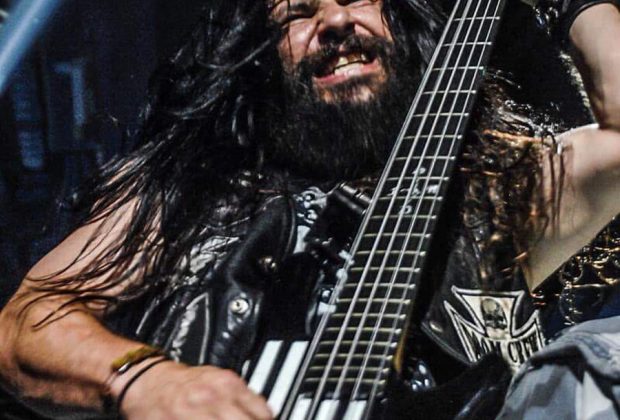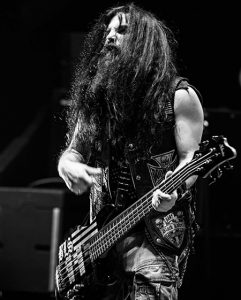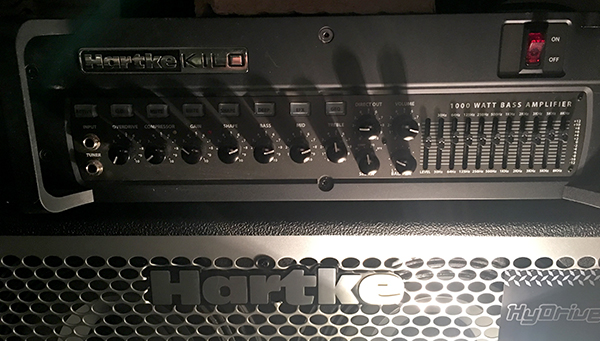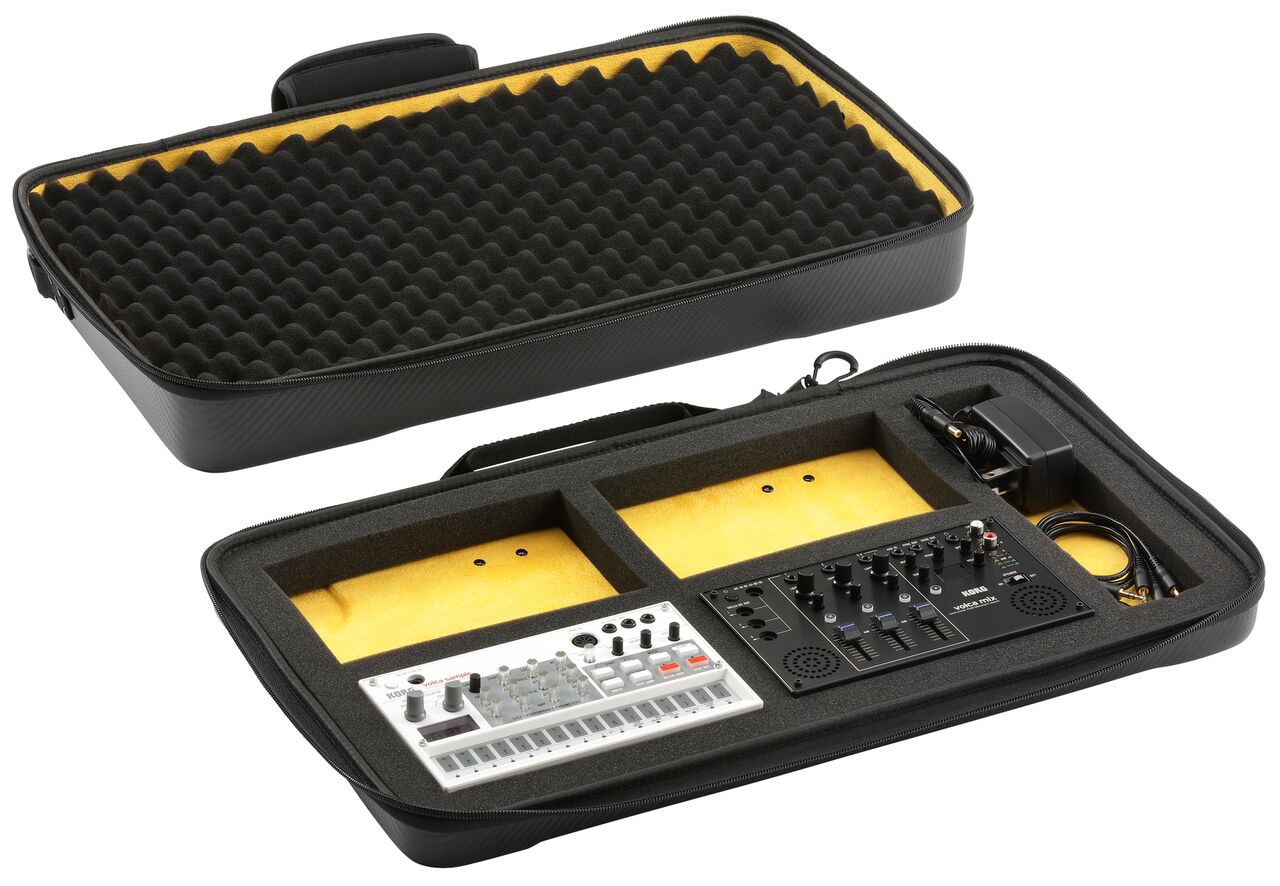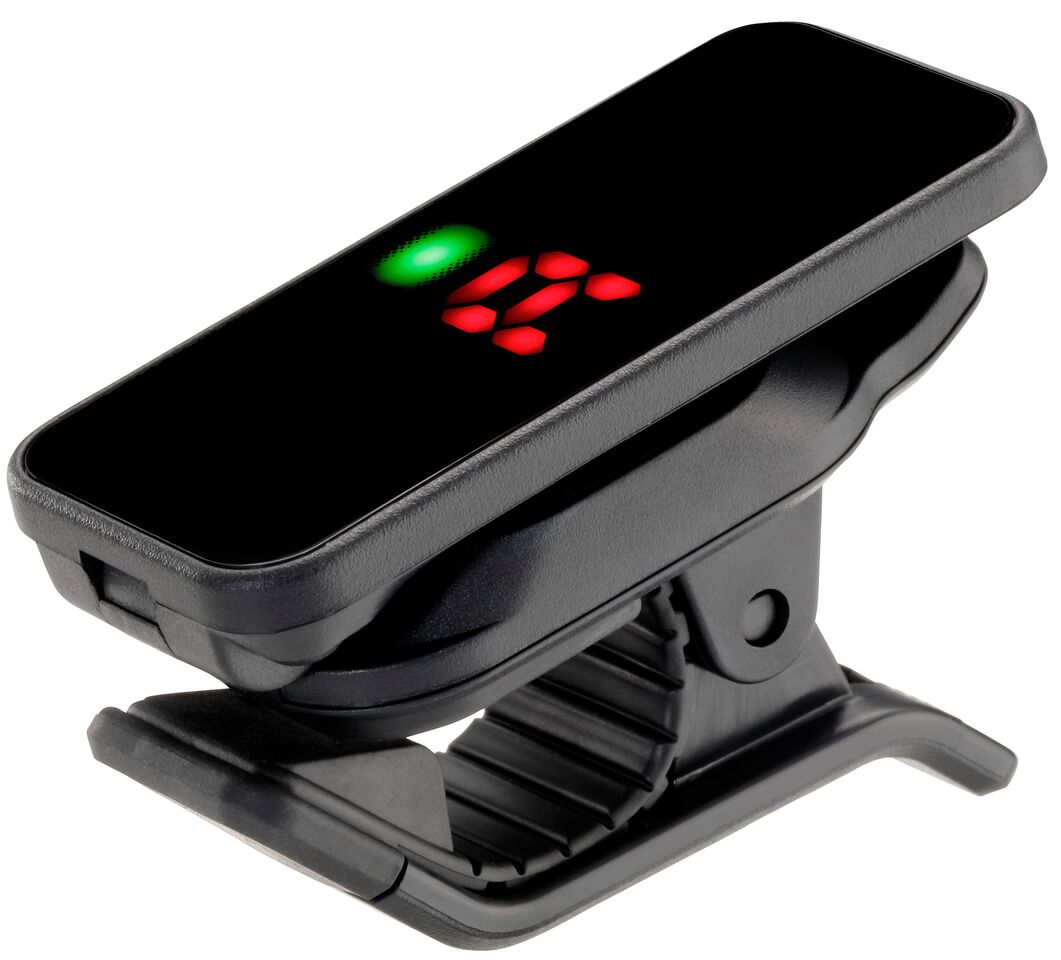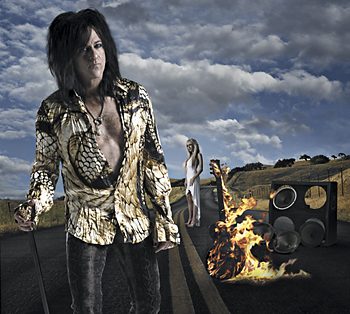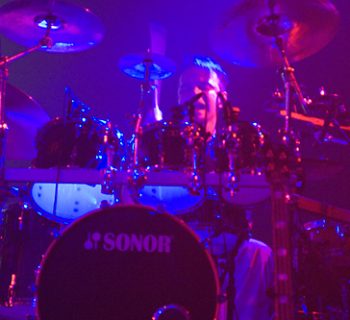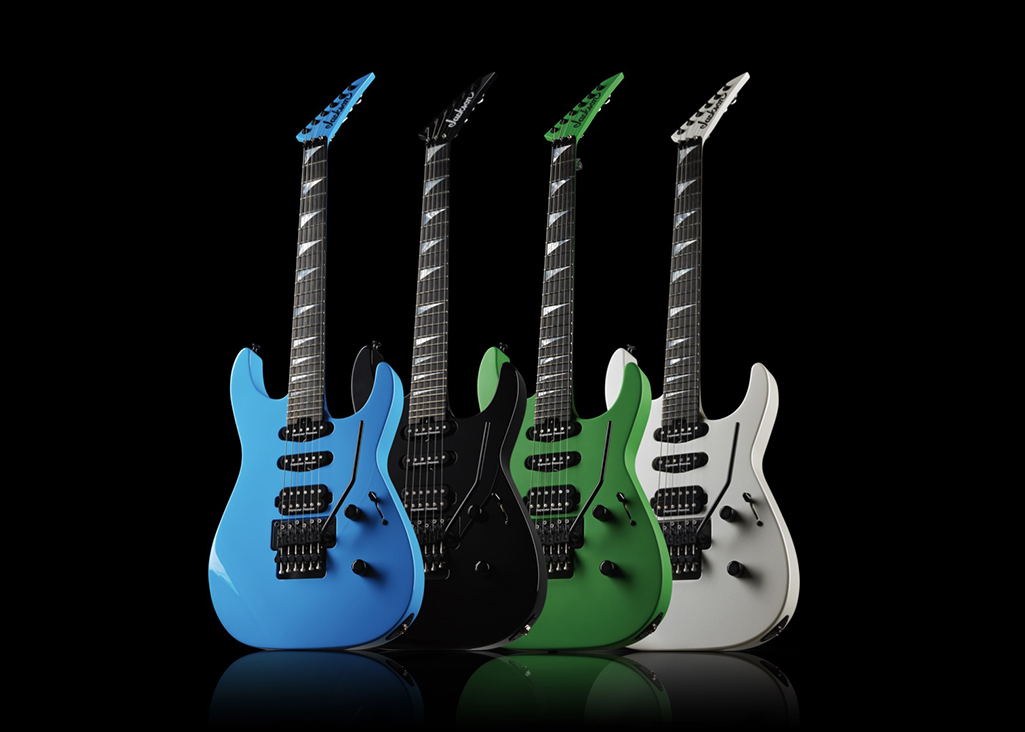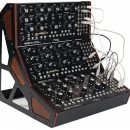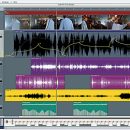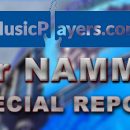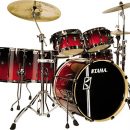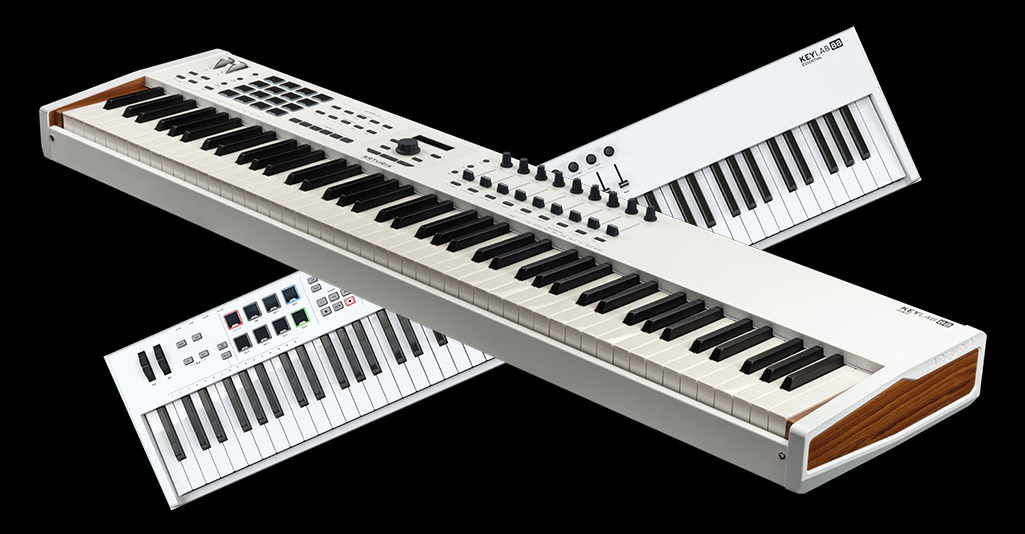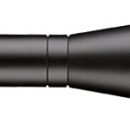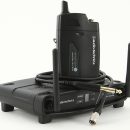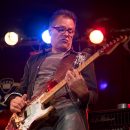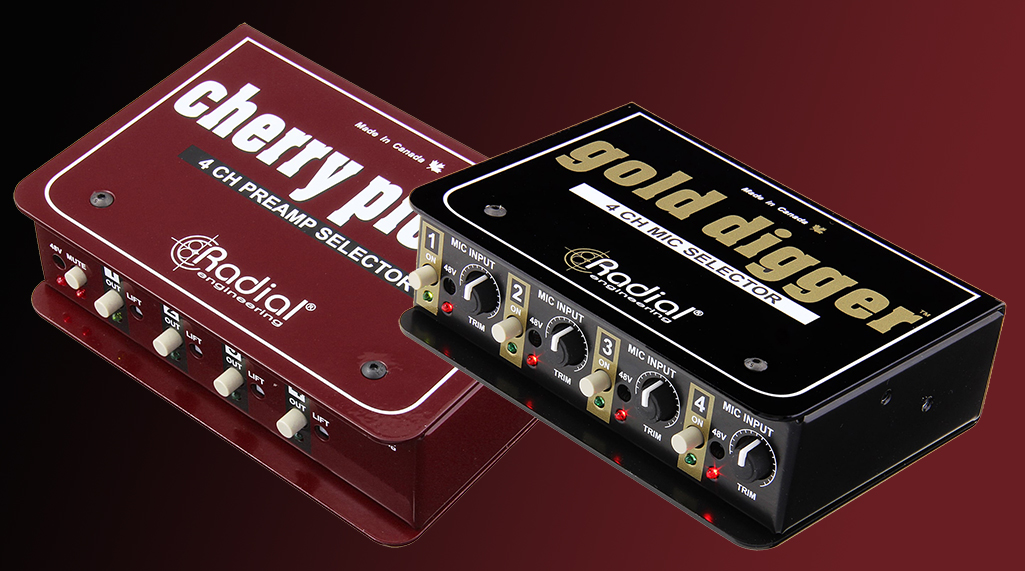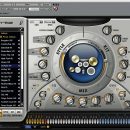New Jersey musician John "JD" DeServio, is well known as the bass player for Zakk Wylde’s Black Label Society, but this Berklee grad’s road to glory was paved with excellent adventures supporting artists ranging from Lita Ford to Vinnie Moore, and he also supports a band of his own, Cycle of Pain.
Although John DeServio is best known for being a heavy metal bass player, he’s got the chops to support artists across many genres, and a sense of humor that could land him some kind of role on Comedy Central if not for the fact that he’s busy being such a kick-ass bass player. We caught up with DeServio on our own turf “down the shore” as they say, to talk about, well, bass stuff!
MPc: Okay, John, really… Frequencies 420 hertz? [Laughs]
JD: 420 hertz. It really does. It hurts a lot. [laughs]
MPc: Let’s talk about how did that come about? Why did you guys start tuning down?
JD: Well, you know, 420 Hz is the symbol for weed-smoking, so that’s pretty much how it became used. Because I won’t play unless we’re in 420 Hz.
MPc: So, does Cycle of Pain use 420 Hz?
JD: [Laughs] Of course! Of course! But in actuality, though, besides that reason, it’s just a heavier sound, you know what I mean? It’s just—I don’t know who first came up with it. As a kid, I didn’t even know. Obviously, Sabbath tuned, Tony tuned down or whatever. And Kiss did some E flat stuff back in the day—and I didn’t even know that, because it was like—I saw a songbook once that said “E flat” and I’m, like, E flat? I don’t have an E flat. So I didn’t know that they dropped tuned. I didn’t know anything about that.
But it just sounds heavier. And, you know what? It’s a lot—if you play the song down a whole step, then it’s easier to sing, too. So a lot of times we would start out with just a half-step. Like in cover bands and stuff like that, we did that all the time. Because it was just easier for us to sing.
But then it’s like, oh, it sounded heavier, too. So this is fun. And you drop it another one and it’s like, oh, there you go, another half-step, there’s 420 Hz. And now actually, now we’ll tune down to C sharp sometimes, which is a step and a half, which is actually like 410 Hz. Like, “Into the Void”—and bam—like Tony Iommi, I think that low note that he hit was a C sharp. Like, his open E. So that’s a step and a half. So that’s what our whole new record we recorded, we did that tuning. We introduced a new—yeah, 410 Hz. Which has been, a lot of people have been using that forever, but now, yeah, we used it, too, on this record.
MPc: In your mind, does that affect your tonal center? So, do you hear…?
JD: It affects me if it’s a previous song already written and recorded and now we’re going to play it down a step—then it messes me up. Yeah, I don’t like that. I get used to hearing it the way that it is on a record and then live, if a band tunes it down, it’s like, to me, because we’re musicians, we’re trained to hear that shit. So it’s like, Wow, man, it just sounds like a different song, almost. Like, if you have something in D and you drop it down to C and that’s it, it’s the same song but a whole step down, it’s kind of like a different song to me, because it’s a different key.
MPc: All right, Black Label Society’s Grimmest Hits. “Room of Nightmares” and “All That Once Shined.” Tell me about your role in the songwriting process with BLS.
JD: [laughing and joking] My role in the songwriting process is pretty simple. I write everything. Vocal lines, lyrics, I write it all. I tell Zakk Wylde what to sing, what to play, I write the leads. I write it all.
Naw, I’m only fucking kidding. He writes. It’s his songs. I’m there as a co-producer and I mix, and as a bass player and as a sounding board for Zakkie, mostly. Like, we could do this again, we could do this better. Let’s cut this out. Things like that.
But songs, he brings the songs in and we go. I’ll help with arranging them. Stuff like that. Sometimes. Not very often, but if we have to make edits or stuff for radio, that’s my job, stuff like that.
MPc: It’s a little of the producing…
JD: Yeah, all that kind of stuff. But Zakkie, it’s his riffs, it’s his songs, it’s his melodies, it’s his lyrics. That’s why he loves Black Label because it was his outlet from Ozzy back in that time. Because he had total freedom now with Black Label. This thing with Ozzy, you know, you’re playing guitar and that’s it. And writing, but this is, for Zakk, this is everything now. It’s the artwork, it’s everything and he’s into it, man. And it’s awesome. And it shows.
MPc: Let’s talk about your bass gear. In terms of amps, historically you’ve had some pretty big rigs. So what did you settle on for the tour?
JD: Well, for live, to be honest with you, I really only use a couple of cabinets. I mean, we have a bunch on stage. If we turned them all on, we would be dead. [laughs]
MPc: Are they for redundancy or image?
JD: It’s a production, the whole thing, the wall. It looks awesome. As a kid, I saw pictures that I drew of that. And now living it—it’s pretty dope, yeah.
I guess Man O’War actually used all their cabinets, but I really, I don’t care about them or that whatever—that loudness, because that’s just ridiculous. Zakk’s loud as hell doing that out of two cabinets. Forget it, man, it’s like insane. I don’t know if you’ve ever stood in front of his cabinets, but your hair—it’d be like, pinhead, my head would turn.
So it’s crazy loud with just a couple of cabinets, And I use my Hydrive speakers from Hartke that we developed years back and I love them. And with Black Label, I use 12s.
MPc: Okay, is it Harkes?
JD: Yeah. The speakers are. The cabinets are now going to be Zakk’s, his Wylde Audio cabinets with my speakers in them.
MPc: Gotcha. Harke/Wylde Audio custom cab, epic.
JD: Yeah, totally. But it’s the Hartke Hydrive and I use all Samson power amps and stuff. And I use the Harke Kilo. That’s my head, well one of my heads. You know, I split my sound. So I’ll use the Kilo on one side. I have a power amp. So I adjust the preamp on the Kilo and I use another preamp, I have a Fodera model 2000 preamp which I love. And that’s my second sound. So I have a stereo thing, so there’s two different sounds.
Now, when we step on the effect, it’s only through the one side, so it’ll be through the Kilo side. So my distortion’s just on that one cabinet, the other side is still the Fodera, the same.
And so the sound never leaves for the bass, the fatness. Because once you step on distortion with bass, even though there’s a mix button, it just doesn’t happen, man. It’s not—I mean, it’s okay, but you know what? I like running it the way I do. It’s just—it’s pretty simple, too, it’s just two things. That’s it. I do have an A/B box, whatever my techs—I don’t even know what he uses now. I use an A/B box, split it and that’s it. And bang.
MPc: So basically the clean, low sound is always on.
JD: Exactly. Always on.
MPc: And then you add other…
JD: Right. There’s two clean sounds.
MPc: Oh, okay.
JD: Always on. Then when I go to the distortion…
MPc: It only goes to one amp.
JD: Exactly. So that’s sick, you know what I mean? So that’s like the top changes and the bottom stays the same and fills it out.
MPc: Gotcha. Okay, that’s massive.
JD: Without a doubt.
MPc: Okay, strings?
JD: DR strings. I use medium, 45 to 125. On stage, I use the Red Devils. Because I like red, it’s cool. I like the color, it’s cool. I used their Black Beauties, I used the Neon Whites. And when I go overseas, I use them all because I make the flags of each country.
MPc: Oh, cool!
JD: Which is cool. So if I’m in Italy, I’ve got green, white and red. So I used—like I said, I use all… In the studio, I absolutely love their Pure Blues, it’s called. Unbelievable string. I’m so psyched that they let me try them out so long ago and I’m, like, Wow. It’s like—it’s the best-sounding string that I’ve recorded. I use them on the new Black Label. I’ve been using them on stuff I’ve been doing in the studio and it’s a difference, man. I’m psyched, totally.
We rub each other down, with oil and liniment.
MPc: When you tour, do you use in-ear monitors?
JD: I’ve done in ears. Zakk—the band’s on IEMs now. I don’t like it. If I was just a singer, I would love it, because it’s amazing for vocals, man. For bass, I don’t like it. It just loses—I feel like I’m in the studio. I don’t like that. It’s too closed-in. Even though they have room mics, it just—I feel, just going like this I feel isolated. And when you hear yourself every second of every buzz of every—it’s just too much, man. It’s too much for me.
So if I were to ever do them again, I might do it where I don’t input anything in them but the vocals. Because I hear great. When I am on stage, I actually just use regular ear plugs. Where I stand, I have the side fill and I have my monitor in front of me and my amp behind me. So I have an insane triangle here of my sound and whatever I want in the side and the monitors. Which is the drums. So I got the drums cranking. I can hear my bass. I can hear Zakk perfectly because he’s five feet, his cabinet’s right there, maybe 15 feet away, whatever, sometimes. But it’s right there in the front.
MPc: Too close.
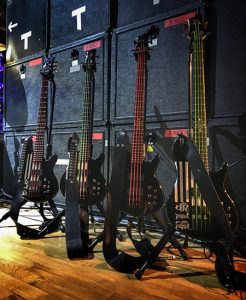 JD: It’s loud. I always hear him. Dario [Lorina, guitarist in BLS], I might not hear so much, but I’ll put a little bit of him and then that’s it, man, I hear it all great. And then in my monitor, I only have my vocal. That’s it, no other vocals. Just my vocal, drums, bass. And like I said, maybe a little keyboard if Dario is playing keyboard or whatever. Something, if he’s playing a little guitar, lead something, I might have him a little bit in there, too. But that’s it, really. It’s pretty simple. I want to make it like that so you don’t have to rely on the monitor guy or anybody else so much. Because you know what? You’re better off just making it as simple as you can, especially live, and that’s it.
JD: It’s loud. I always hear him. Dario [Lorina, guitarist in BLS], I might not hear so much, but I’ll put a little bit of him and then that’s it, man, I hear it all great. And then in my monitor, I only have my vocal. That’s it, no other vocals. Just my vocal, drums, bass. And like I said, maybe a little keyboard if Dario is playing keyboard or whatever. Something, if he’s playing a little guitar, lead something, I might have him a little bit in there, too. But that’s it, really. It’s pretty simple. I want to make it like that so you don’t have to rely on the monitor guy or anybody else so much. Because you know what? You’re better off just making it as simple as you can, especially live, and that’s it.
MPc: Okay, so how do you and (drummer) Jeff Fabb prepare for the road? Just, the rehearsals or do you guys do any…?
JD: Well, we rub each other down, with oil and liniment. Stretch out the hammies good. We get strenuous up there, yeah. It’s nothing, man, you just … [Joking, laughing]
MPc: You just know the parts.
JD: Exactly. You do your homework and that’s that, man. You show up, you go to work and you kick ass, man. That’s it.
MPc: And you guys have a set list?
JD: Yeah, we have a set list, so now when we went to rehearsal, we rehearsed these newer songs that we were throwing in there. As well as the old ones, we hadn’t played in over a year. Like, Black Label—yeah, Black Label hasn’t really toured in two years or so. Because we toured with the Book of Shadows thing the last time we toured. We did do a couple of Black Label shows, but not a tour. It’s crazy how long that’s been.
Everybody should at least be able to do eighth notes with their one finger like a high hat, kick on 1 and 3... If you could get that, man, it’s going to help you on piano, on bass, on guitar, vocally—you name it.
MPc: You have worked with Vinnie Moore in the past, and you have done some recording with guitarist Mike Romeo (Symphony X). How do you prepare to tackle such technically demanding compositions?
JD: Oh, god, it’s... it’s challenging to say the least, man. To do 16th notes, 120 bpm is kind of an advanced thing, for some, without a doubt. Definitely. To try it at 178 bpm is like, you know—I took steroids, I took three different steroids. My bench went up to like 350. So. It was a lot of legwork in there, too, man.
MPc: So, how do you break down the parts?
JD: You just gotta’… you know what you do. Because Mikey is so involved. He’s such a composer. And his biggest guy is John Williams. Yngwie was his first guy back in the day, he’s always loved composers, though. And when you guys hear his solo stuff, you’re going to be like, oh, my god.
It’s kind of like a soundtrack to a movie, almost, and then these sick metal riffs. Like, odd time stuff and, like I said, burning stuff like 178, fast. And a really, really cool, different riff—his riff ideas are really, really amazing, very advanced.
And yet I’ll leave him to tell you and everybody else about the whole thing, but it’s very interesting, I’m going to say that. I don’t want to give anything away. But, yeah, it’s sick, man.
I haven’t even heard the leads yet and just the rhythms and the leads behind some of the rhythms are, like, it’s already devastating. He’s a monster.
MPc: So, talk about parts that were challenging …
JD: Every, every part basically. Yeah, you know what? With his music, what I would have to do a lot of it is just put the click on and play the part to the click. And just practice it because, yeah, it’s stuff—when you don’t write stuff and you’re trying to fill somebody else’s shoes, it’s hard, man. When you write your own thing, it’s easy because it’s your own thing. I would have never written any of these things because I really can’t do them right away. I could practice them, yeah, and I did and got them better and got enough where I could press “record” and be like “oh, that’s pretty good.” Because it’s pretty insane, man. It is very, very challenging and humbling to say the least, man. But, wow, it was really—it was great, I love it. I love all these experiences.
MPc: Okay, besides being a monster bass player, you’re a very good pianist. How does knowing your way around the piano help you as a musician, as a bass player?
JD: Oh, everything helps. Everything. Like I tell you, play some drums. Everybody should play some drums, even just [taps on table]. Or even that, just [drums more]. Get a groove going with yourself and, once you can internalize that, it’s in your playing. [keeps drumming]. I could just talk or whatever. I’m in time. I’m in time. Yeah. Yeah. Talkin’ about the bass now. And the bass… [stops drumming]
You know, just whatever. Everybody should at least be able to [drums again] do eighth notes with their one finger like a high hat, kick on 1 and 3. One-and-two-and-three-and-four and hit the twos and the fours with your other hand, with your left. If you could get that, man, it’s going to help you on piano, on bass, on guitar, vocally—you name it. James Brown was a rhythmic genius and he’s a vocalist, right? That’s what he’s known as. He played piano, he did everything. But he composed. But rhythm, man, it’s huge.
And that’s a mystery to a lot of people because you really can’t see it, you know what I mean? You can see notes, but you can’t really see the… yeah, you put a dot on it, yeah, but it’s interpreted a different way. When you’re swinging, it’s a different thing. So, rhythm is definitely huge and also, like you were saying before about the piano, because I know music theory—I never played piano at all really. And I always loved it, it was always a scary instrument to me because it’s insane. But, knowing music theory, I’m able to transfer that knowledge to the piano. And it’s easy with the piano, because there’s only one note per key, that’s it. On guitar, the way you tune, on a bass, there’s three of these open Gs. The open G and then the fifth fret D and then the 10th fret A and then the 15th fret E. That’s all that same G, it gets very confusing. But piano’s easy, just one-one-one, that’s it.
And it’s all laid out for you with the intervals, which is very important, so you could see your scales and stuff and make your chords pretty easy.
MPc: Do you use any music apps to help you?
JD: Well, the one app that I’ve been using for a while now is that Super Metronome App. That’s my favorite. Just like a drum machine, a little beat-maker thing. And you can get in-depth to a point where you can actually see where 16th notes are and all that stuff and, if you have some understanding of that, like I’ve been saying, then it makes it easy to write the beats and edit so you can work on something, hit a certain 16th note, like the [1-E], like I was telling you about, the one-e-and-a, two-e-and-a stuff. I love that app. That’s really, that’s kind of my go-to.
MPc: You do bass clinics. Are we ever going to see a JD master class or a bass boot camp?
JD: Aw, that would be awesome, man. Maybe when I get back from tour next year, maybe I would try to put something like that together, that’s a good idea. Because Victor Wooton does it, he’s been doing it for years. And he’s a genius. He’s a monster. But that would be a cool idea. If I can scrape up two or three people to come hang out with me, maybe we’ll go out in the woods across the street. It’s a remote location and we’ll jam.
MPc: Just do it for a day.
JD: Bring the amps. We’ll go down to the beach, we’ll run on the beach like Rocky and Apollo. That was really fun. [laughs]
MPc: This is the last question. All right? What question do you wish someone had asked you? What is a question you’ve always wanted to answer?
JD: What’s the fastest animal on the Earth?
MPc: What is it?
JD: The cheetah!
MPc: Oh! [Laughs]
JD: See? I’ve been waiting. And nobody friggin’ asked me that fucking question. I learned that shit years ago and now… There you go.
Feature photo credit goes to Annie Atlasman

